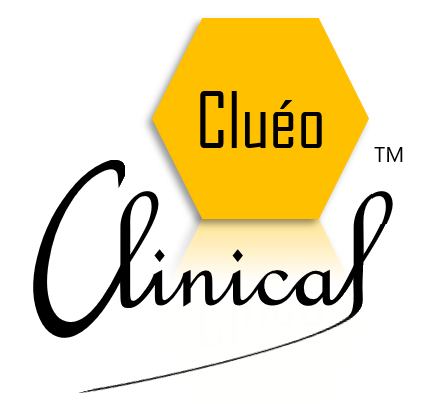In clinical research, securing a position often involves navigating various interview formats. The interview process in this industry go beyond typical question-and-answer sessions; they include specialized methods designed to evaluate a variety of skill sets and essential qualities specific to the role. Let’s explore the different types of interviews commonly used in the clinical research industry:

1. Traditional Interviews:
The conventional face-to-face interview remains a staple. Expect questions probing your experience, skills, and alignment with the role. These interviews provide a platform to showcase your qualifications and enthusiasm for clinical research.
Excelling in traditional interviews involves a combination of preparation, confidence, and effective communication. Know your resume inside out and be ready to discuss your experiences, skills and achievements while making connections to the job requirements. Dress appropriately for the role that aligns with the company’s dress code. Ensure to arrive early, about 10-15 minutes before the scheduled time. During the interview, always maintain good posture and use gestures moderately to enhance communication. Convey enthusiasm for the opportunity to contribute to the organization. Research the company in advance to understand the organization’s mission, values, and culture, and to familiarize yourself with recent news or developments related to the company. Another way to show enthusiasm is to prepare some thoughtful questions about the company, team, and role. However, avoid asking questions that can be easily answered through basic research as this shows your lack of preparation.
2. Behavioural Interviews:
This interview format delves into your past experiences to predict future behaviour. You’ll be asked to recount specific instances where you displayed particular skills or handled challenges. Expect questions like “Can you describe a situation where you had to manage conflicting priorities in a clinical trial?”
Check out our key strategies for success with behavioural interviews.
3. Panel Interviews:
Here, you’ll face a group of interviewers simultaneously. Panel interviews gauge how you handle pressure, articulate ideas, and engage with multiple stakeholders. Preparation and clarity are key in these sessions.
To ace panel interviews, try to research the panel beforehand to understand their roles and backgrounds, and tailor your responses to align with their interests or expertise. During the interview, try to reference their interests or experiences to build rapport. Make eye contact with all panel members when answering questions. If you can, simulate the dynamics of a panel setting by conducting mock interviews with friends or mentors to build confidence. Anticipate questions from different perspectives (e.g., technical, managerial, interpersonal). After the interview, remember to send individual thank-you emails to each panel member and reiterate your gratitude and mention specific points discussed during the interview.
4. Case-based (situational) Interviews:
Candidates are presented with hypothetical or real-life scenarios encountered in clinical research. These assessments evaluate problem-solving abilities, critical thinking, and decision-making skills. Candidates might be asked to devise a research plan or handle an ethical dilemma.
This interview format aims to distinguish candidates with prior experience from those without. If you are entering the industry without experience, while you may secure an interview based on your CV, you could face elimination during this specific type of interview, commonly utilized by hiring managers and companies.
That’s why merely possessing an impeccable CV isn’t sufficient to break into the clinical research industry. To successfully enter this industry, you must possess the appropriate knowledge, skills, and interview assistance – elements comprehensively covered in our exclusive Industry-Bridging Programs.
5. Technical Interviews:
Focused on assessing your technical prowess, these interviews evaluate your knowledge of clinical trial methodologies, data analysis tools, regulatory guidelines, and protocol adherence. Be prepared for scenario-based questions and practical exercises.
Much like situational interviews, technical interviews are intricately tailored to the industry role. Their purpose is to assist hiring managers in “short-listing” candidates by evaluating their comprehension and expertise in the industry as well as the specific job requirements.
You’ll receive all the career support you’ll need to pass technical interviews and more in our Industry-Bridging Programs.
6. Group Interviews:
Conducted with multiple candidates simultaneously, these interviews assess teamwork, communication skills, and how well you collaborate in a group setting. Anticipate group discussions or exercises so be ready to contribute actively, showcase your problem-solving skills, and demonstrate teamwork.
To excel at group interviews, practice active listening in order to contribute thoughtfully by offering insightful comments and ideas. Try to balance speaking up with allowing others to share their thoughts as well to demonstrate that you are a team player. Although you are part of a group, you are still being assessed as an individual, ensure you maintain positive body language, including eye contact and open gestures. While being a team player is crucial, also look for opportunities to display leadership qualities. Take initiative when appropriate and guide the group toward effective solutions.
7. Virtual or Video Interviews:
With the rise of remote work, virtual interviews via video conferencing platforms have become commonplace. Ensure a professional setup, familiarize yourself with the technology, and maintain eye contact while speaking.
Click here to learn how to mater the art of online interviews.
8. Stress Interviews:
Designed to gauge how well candidates handle pressure, stress interviews involve deliberately challenging or intense questioning. Stay composed and demonstrate resilience in such scenarios.
To succeed at stress interviews, a combination of resilience, adaptability, and effective communication are required. Maintain your composure, even when faced with challenging or intense questioning by taking a deep breath before responding to collect your thoughts. Pay close attention to the interviewer’s questions, ensuring you understand them fully. If in doubt, always ask for clarification before responding. Take a moment to think about your answers, even if the interviewer is pressing for a quick response. It’s better to pause briefly to gather your thoughts than respond quickly and regret what you said. Approach questions as opportunities to showcase your problem-solving abilities. Try to break down complex problems into manageable parts and articulate your thought process. Avoid expressing frustration or irritation, even if the questions are challenging. Focus on providing solutions rather than dwelling on the stress-inducing nature of the questions. Discuss lessons learned using the STAR method and how those experiences have made you stronger. If appropriate, inject a bit of humour to lighten the mood, but be cautious not to come across as dismissive or insincere. Anticipate unconventional or unexpected questions and scenarios. If possible, practice handling challenging questions with a mentor or friend.
9. Informal Interviews or Coffee Meetings:
Sometimes, a more relaxed setting like a casual meeting or coffee session allows for informal discussions. These meetings might focus on understanding your personality, interests, and cultural alignment with the organization.
To thrive at informal interviews, be approachable and friendly to create a positive first impression by greeting your interviewer with a warm and genuine smile. Gauge the level of formality in the setting and adjust your behaviour accordingly. Be adaptable to the conversational style and pace of the informal setting. Engage in natural and open conversation by sharing relevant stories or experiences in a conversational manner. Allow your personality to shine through, showcasing aspects of your character that might not be apparent in a formal interview. However, avoid oversharing personal details that are not relevant to the job. While the setting is more relaxed, maintain a level of professionalism in your communication and appearance. Use the informal setting to demonstrate how well you would fit into the company culture by aligning your responses with the organization’s values and work environment. Take advantage of the informal setting to ask questions that provide insights into the company’s work culture by inquiring the hiring managers about team dynamics, communication styles, and collaborative approaches. Remember, informal interviews are an opportunity to showcase your personality, cultural fit, and interpersonal skills. By striking a balance between professionalism and authenticity, you can excel in these settings and leave a positive impression on the interviewer.
Check out the top 10 most challenging interview questions and how to craft winning responses.
Understanding the nuances and expectations of these diverse interview types is pivotal for excelling in the clinical research industry. Tailor your preparation to align with these varied formats, showcasing not just your skills but also your adaptability and versatility as a candidate.
Want more tips and strategies on how to enter the clinical research industry? Subscribe to our newsletters or follow us on LinkedIn.
If you are not sure what to do, contact us via email at info@clueoclinical.com or call us at 1300 39 22 06 for an obligation-free discussion.
Ready to take your career to the next level? Click HERE to ENROLL NOW in our Industry-Bridging Programs (IBPs).

Dr. Thu (Sue) Nguyen, PhD
Sue is the founder and CEO of Clueo Clinical Pty Ltd. She has over 17 years of combined experience in clinical and pre-clinical research and development, training and management. She is passionate about patient-centric science, clinical research, education, and helping others find their career passion and succeed in life.
She is an avid learner, an authentic networker and wants to empower the next generation to reach their fullest potential in Australia and around the world.



